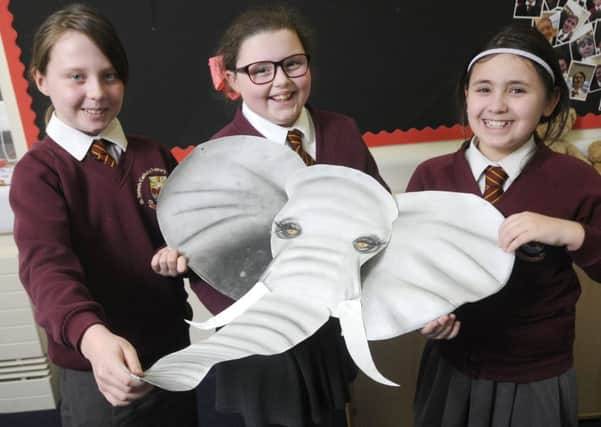Are elephants destined to be the subject of history books?


Have you ever seen an elephant up close?
If so, then it was more than likely to be one in captivity. Everyday hundreds of people visit zoos around the world and see these amazing creatures in a calm peaceful setting as this is the most common place for them to be placed in captivity.
Others are part of a travelling circus and put on shows.
However, there are others who aren’t quite as lucky.
Did you know elephants have the largest animal brain? Most of the time elephants adjust very well being in captivity.
Advertisement
Hide AdAdvertisement
Hide AdThey are social; especially the females so having at least two of them together is important.
In our class at St Teresa’s Catholic Primary School on St George’s Avenue we interviewed wildlife presenter Gordon Buchanan on Skype.
Elephants are calm animals if you leave them alone.
In hundreds of years, children might only see elephants in history books!
Elephants are forced to paint and play football in Thailand also for the amusement for tourists, some elephants are kept in unnatural habitats! To force them to paint they use: whips, chains, harsh training.
Do tourists know the truth about this elephant wonder?
Elephants are now growing without tusks so the hunters won’t go into their habitats to take the ivory.
Also next year elephant ivory stealing will be banned!